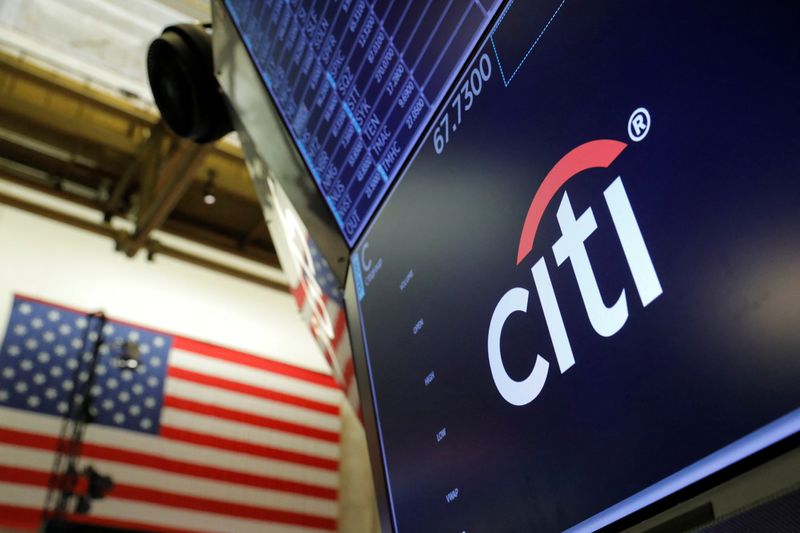BOSTON (Reuters) – Citigroup Inc on Wednesday laid out goals for corporate borrowers to cut emissions that included a rare “absolute reduction” target for companies in the energy sector by the end of the decade.
Citi said in a report that it aims for emissions from companies across its energy loan portfolio to drop 29% by 2030 from 2020. Other banks have focused on cutting clients’ “emissions intensity,” a measure of emissions relative to output that climate activists have said does not go far enough.
Citi did target a 63% reduction in emissions intensity for borrowers across the power sector.
A Citi representative said while global absolute emissions must decrease soon, it chose an intensity target for power “because many aspects of the global economy will need to be electrified, so we’ll need to increase power generation while also decarbonizing it.”
The figures were in a report Citi issued detailing how, like other banks, it aims to achieve net-zero carbon emissions associated with its financing by 2050.
As governments vow to cut planet-warming carbon emissions, attention has turned to practical questions of how banks, energy and power companies can transition to cleaner fuels without hurting global growth.
In an introduction to the report, Citi Chief Executive Officer Jane Fraser said the bank aims to balance its climate efforts with other goals like not exacerbating income inequality, especially in developing markets. Dropping clients, she wrote, would be a “last resort.”
Among global banks, Citi financed the second-largest amount of fossil-fuel activities in 2020, $48.4 billion, according to a report last year by climate advocacy groups.
Several of those groups on Wednesday praised Citi’s approach over rivals but said the New York bank should do more to restrict lending to the oil and gas industries.
“The bank should require companies to end expansion of fossil fuels as an explicit criterion in its client assessment,” said Jason Opeña Disterhoft, a representative of the Rainforest Action Network, via e-mail.
(Reporting by Ross Kerber; Editing by Bernard Orr and Cynthia Osterman)






















